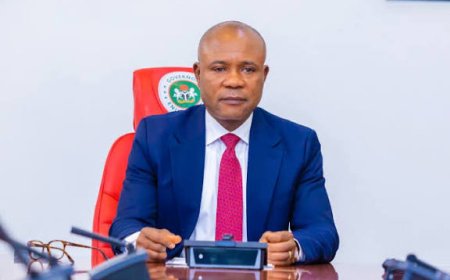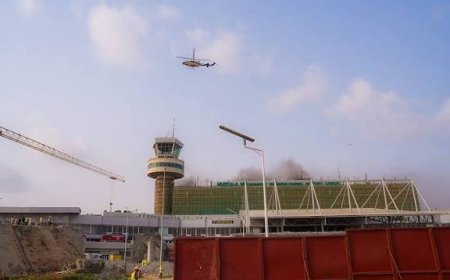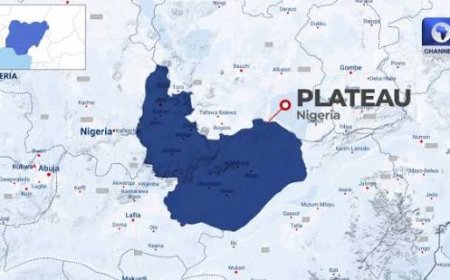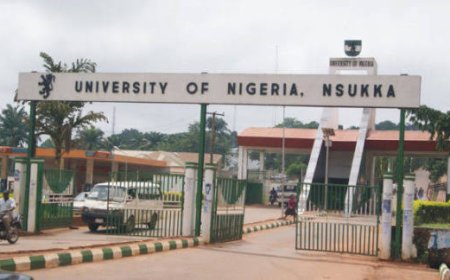By Ajukomike Omehee
The chilling revelation by the National Bureau of Statistics (NBS) that Nigerians paid a staggering N2.23 trillion as ransom between May 2023 and April 2024 is both alarming and sobering. This monumental figure is not just a testament to the deepening insecurity in the country but speaks to the state’s apparent helplessness and inability to protect its citizens from criminal activities. The data highlights the profound financial and emotional toll that kidnapping has inflicted on Nigerian families, many of whom are left with no choice but to negotiate with criminals for the safe return of their loved ones. In doing so, they unwittingly fuel a vicious cycle that perpetuates further kidnappings.
The NBS’s Crime Experience and Security Perception Survey paints a grim picture of the nation’s security landscape. With over 51.89 million crime incidents recorded in just 12 months, Nigeria appears to be grappling with a pervasive and systemic breakdown of law and order. The North-West region emerged as the epicentre of criminal activities, reporting 14.4 million incidents, followed by the North-Central with 8.8 million. While the South-East reported comparatively fewer cases, the statistics reveal that insecurity is a national crisis, affecting both urban and rural communities. Notably, rural areas bore the brunt, recording 26.53 million crime incidents compared to 25.36 million in urban centres.
Of all the criminal activities reported, kidnapping stands out as the most lucrative and devastating. With 4.14 million households experiencing home robbery and a significant proportion of these cases involving abduction, kidnapping has become a thriving industry in Nigeria. The report revealed that 65% of those affected by kidnappings were compelled to pay ransom, with an average payout of N2.67 million. This culminated in the N2.23 trillion paid over the referenced period, a figure that eclipses the budgets of some Nigerian states and even the federal allocations to critical sectors like education and health.
The financial burden borne by affected households cannot be overstated. Many families resort to selling assets, liquidating savings, or taking on loans to meet ransom demands. The human toll is equally severe. Beyond the trauma of abduction, victims and their families endure psychological scars that last long after the ordeal. In many cases, these ransoms represent life savings, plunging families into debt or financial ruin. The sheer scale of the sums paid underscores the desperation of families who, faced with the grim choice of compliance or the potential loss of a loved one, opt to pay up.
The Nigerian government has, on multiple occasions, taken a firm stance against the payment of ransoms. Official policy discourages ransom payments on the grounds that they embolden kidnappers and sustain their operations. President Bola Tinubu, like his predecessors, has reiterated that paying ransoms incentivizes the crime, turning it into a profitable venture. From a strategic perspective, the government’s position is logical. Eliminating the financial rewards of kidnapping would eventually make the practice unsustainable.
However, the reality on ground is far more complex. For families confronted with the abduction of a relative, moral or policy considerations become secondary to the urgent need to save lives. The government’s seeming inability to guarantee the safety of citizens or to swiftly rescue kidnapped victims has eroded public trust in law enforcement and security agencies. This vacuum forces families into negotiations with criminals, even at great personal cost. Essentially, citizens are left to fend for themselves, choosing between policy compliance and the imperative of survival.
The NBS report also sheds light on a troubling trend. A significant number of crime victims, including those affected by kidnapping and home robberies, do not report incidents to law enforcement agencies. Only 36.3% of home robbery victims reported their cases to the police. The reluctance to report crimes stems from deep-seated mistrust in the Nigerian Police Force and other security agencies. Victims often cite inefficiency, corruption, and the lack of tangible results as reasons for bypassing law enforcement.
In cases of kidnapping, victims fear that reporting incidents might worsen their situation or jeopardize the safety of the abductee. Furthermore, the slow response time of security agencies and the lack of adequate resources to track down kidnappers reinforce the perception that reporting crimes is futile. In rural areas, where insecurity is most pronounced, the presence of security agencies is minimal or nonexistent, leaving communities vulnerable to criminal gangs operating with impunity.
This reporting deficit hampers the ability of law enforcement agencies to analyze crime patterns, identify hotspots, and implement effective countermeasures. A robust reporting culture is crucial to addressing insecurity, yet the systemic failures of law enforcement discourage citizen participation.
The geographic distribution of crime, as highlighted in the NBS report, raises concerns about the uneven spread of insecurity across the country. The North-West, with its high incidence of crime, has been a hotspot for banditry, kidnapping, and communal conflicts. States like Zamfara, Kaduna, and Katsina have been particularly affected by the activities of criminal gangs who terrorize rural communities, abducting residents for ransom and displacing thousands.
In the North-Central region, a combination of farmer-herder clashes, banditry, and other forms of criminality has contributed to the high crime rates. Meanwhile, the South-East, despite reporting fewer crime incidents, continues to grapple with separatist agitations and occasional violent attacks, which further exacerbate the security crisis. In recent times, for instance, the Ugwuogo-Nike- Opi-Nsukka road in Enugu State has become kidnap flashpoint. These regional disparities reflect the need for localized, context-specific approaches to tackling insecurity, rather than a one-size-fits-all strategy.
Addressing Nigeria’s kidnapping crisis requires a multi-faceted and sustained approach. First and foremost, the government must prioritize the strengthening of security infrastructure across the country. This involves equipping security agencies with modern surveillance technology, adequate funding, and enhanced training to combat criminal networks effectively. In this regard , the the the recent CCTV security surveillance system put in place by the Enugu State government represents a step in the right direction. Rural communities, which are disproportionately affected, must receive targeted interventions to improve security presence and response times.
Secondly, there is a need to address the root causes of kidnapping and criminality. High unemployment rates, poverty, and the proliferation of arms have created an environment in which kidnapping thrives. By investing in job creation, education, and poverty alleviation programs, the government can reduce the economic desperation that drives individuals into criminal activities.
Furthermore, there must be greater accountability within security agencies. Corruption, inefficiency, and human rights abuses have eroded public confidence in law enforcement. A reformed police force - one that is professional, responsive, and accountable - is essential to restoring trust and encouraging crime reporting.
The N2.23 trillion ransom payments over 12 months represent more than just a financial loss. They symbolize the extent to which Nigerians have been left vulnerable to criminal elements. It is an indictment of a system that has failed to fulfill its most basic obligation, that is, the protection of life and property. While the government’s official stance on ransom payments is understandable, it must be backed by concrete actions that reassure citizens of their safety. Without decisive intervention, the kidnapping industry will continue to flourish, fueled by the desperation of families and the absence of effective deterrence.
The time for rhetoric is long past. Nigerians deserve a government that prioritizes their safety and security. Failure in this regard leaves the citizens with no option than to negotiate their survival with criminals. The staggering ransom figures revealed by the NBS should serve as a wake-up call to all stakeholders - government, security agencies, and citizens alike. The fight against kidnapping must be relentless, coordinated, and comprehensive. Anything short of this will leave Nigeria perpetually held hostage, with its citizens paying the price. And for how long would the citizens be able to keep the tap of ransom payment running? The answer undoubtedly blows in the wind!


































































